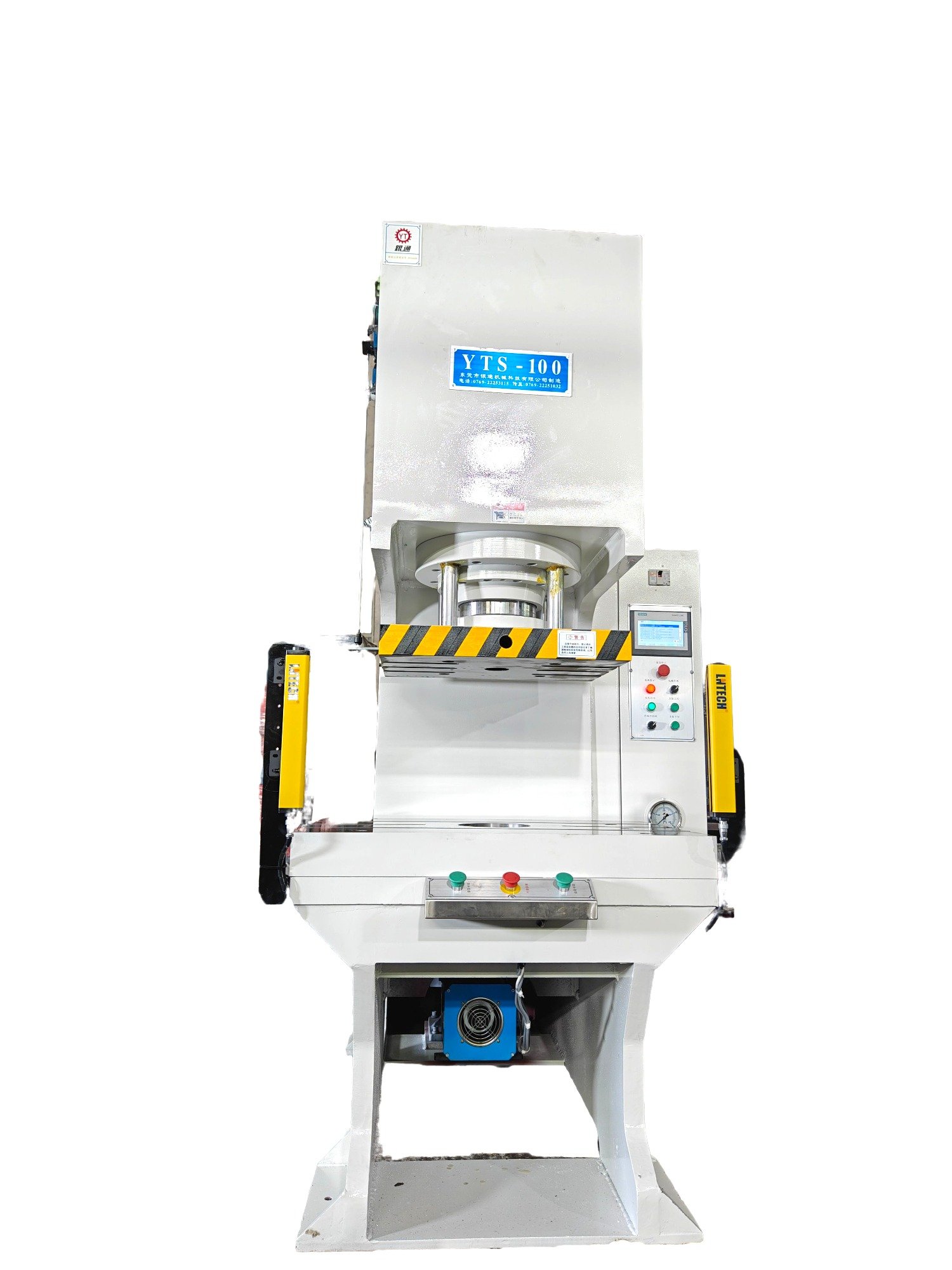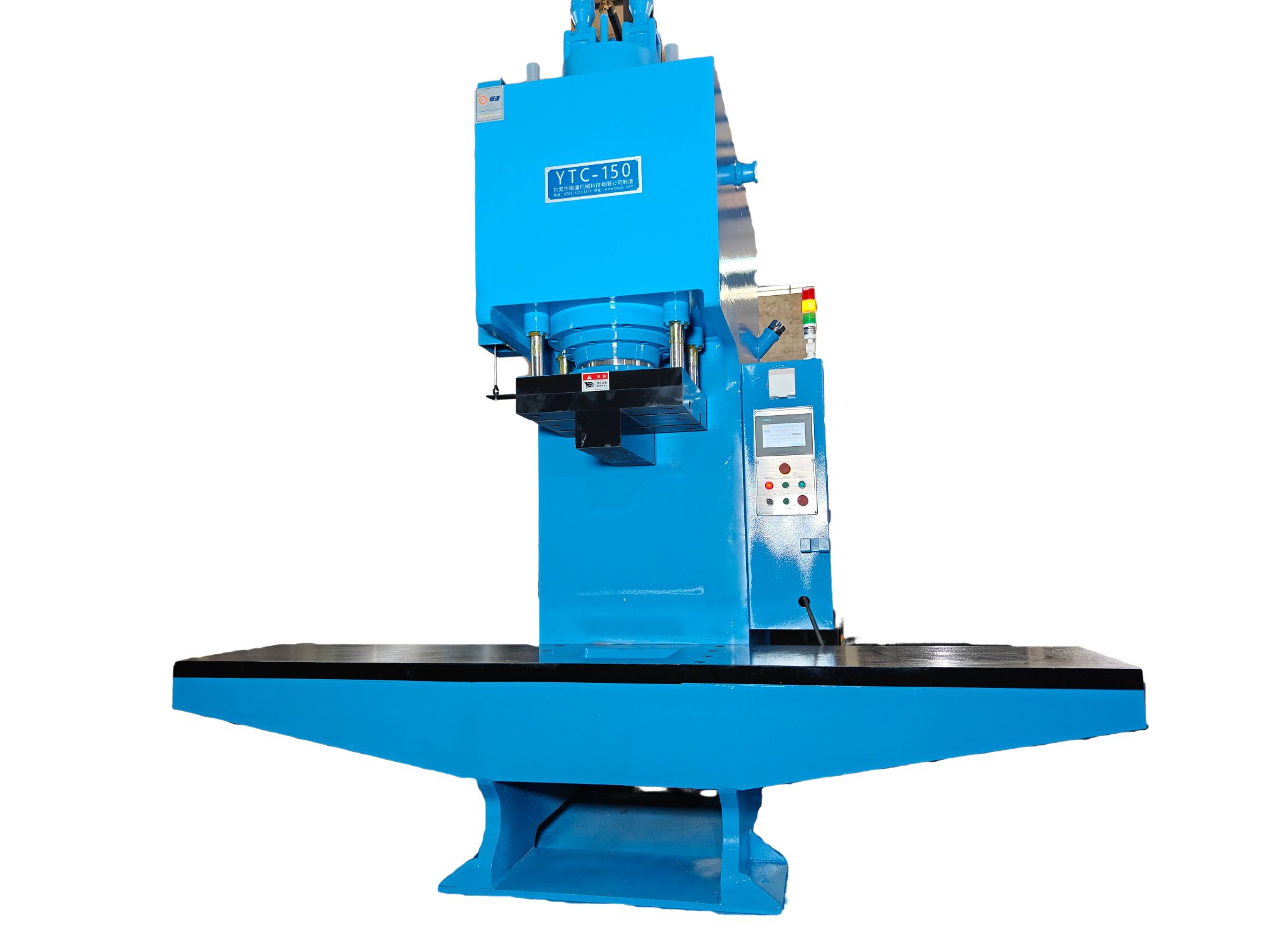What Can I Use a Hydraulic Press For?
time:2023-06-02 views:(点击 1,068 次)
While you might have seen people use hydraulic presses online for amusement by crushing items like cheese and magnets, these devices can actually serve a valuable function for various industries. Hydraulic presses work by applying pressure to a small cylinder called the plunger which then creates more force through a master cylinder below.
Metalworking
Hydraulic presses are indispensable tools for metalworking. From powder compaction, metal forming, stamping and punching through assembly - not to mention compressing plastic, rubber and other materials! They come in handy.
Metal fabrication is an extensive industry that requires numerous tools and machines. A hydraulic press is one of the primary tools in metalworking, as it can create complex shapes. Furthermore, hydraulic presses help form and bend metal pieces for welding or staking applications.
Hydraulic presses can be found in nearly every large scale industry. Pulp and paper manufacturing, wind turbine manufacturing, wood products manufacturing, marine and offshore systems and other businesses utilize hydraulic shop presses to perform numerous functions ranging from forming, punching, staking piercing blanking. Furthermore they can be used to make dies for abrasive wheels bonding broaching or ball sizing among others.
Hydraulic presses can be utilized in laboratory settings to quickly and cost-effectively create prototypes of microfluidic devices. Furthermore, hydraulic presses can be utilized as dissolution testing apparatus - an important quality control process which ensures effective pharmaceutical products.
Other industrial tasks a hydraulic press can perform include deep drawing, shell reductions, urethane bulging and forming. Furthermore, they can also be used to recycle specialty waste; for instance old oil filters could be compressed into cubes which can then be reused or properly disposed of using this method.
Many people enjoy watching hydraulic press videos on social media sites and other platforms, especially those which show everyday household objects being destroyed in dramatic fashion - pads of sticky notes crackling into bricks, candles exploding into spectacular displays, metal kitchen utensils becoming modern art pieces and so forth. Not only can such videos provide viewers with the satisfying sensation of destruction but they can also teach lessons about hydraulic presses' capabilities.
Agriculture
Hydraulic presses are industrial machines that utilize a system of pipes, cylinders, and motors to generate immense pressure. Unlike mechanical presses which only develop full force at the bottom of their stroke, hydraulic presses provide consistent and even pressure throughout their entirety - ideal for tasks requiring high levels of force over a relatively small area such as crushing items or molding plastic.
Although hydraulic presses may not immediately come to mind when discussing agriculture, this industry makes extensive use of them. Farmers rely on equipment like hydraulic presses for processing large amounts of plant materials quickly and efficiently - quickly straightening, molding and crushing items that need repair before sending them off for further use or repair.
Metalworking is another common use for hydraulic presses, primarily as tools to form metal into various shapes and sizes, shear, punch or bend it as necessary, shearing or punching or bending as required, shearing, punching or bending as necessary, shearing punching or bending metal parts like car bodies brakes engine components into different forms. Furthermore, hydraulic presses are employed by large industries such as pulp and paper manufacturing wind turbine manufacturing wood products marine and offshore systems as well as others.
Hydraulic presses can be found in nearly every shop that deals with metal. Many mechanics and similar professionals own one at home for repairs ranging from breaking apart rusted gears to pressing out bearings for equipment. You'll likely come across one somewhere around the globe!
Hydraulic presses utilize hydraulic systems that generate massive compressive force by pressurizing liquid, typically oil, through pipes and cylinders. A pump generates and disseminates this force through these cylinders until it reaches a smaller piston attached to a larger one, then applies this force against whatever item needs working on. In addition, this machinery is frequently used to recycle specialty waste such as old oil filters by compressing them into cubes that deny microorganisms access to them and so stop further development of life within these products.
Plastics
Hydraulic presses can be extremely helpful tools in workshops for flattening and crushing items, helping with recycling specialty waste such as oil filters for sale as recycling material, or helping save space at waste dumps by compacting different kinds of trash together to save on space requirements.
Manufacturing uses of hydraulic presses can include shaping metal pieces into desired forms or compressing larger items into more manageable sizes. Industries including automotive, ceramics, food processing, aerospace engineering and appliance production employ hydraulic presses for this purpose.
A hydraulic press works by employing a hydraulic pump to generate force that is then applied to the stock. This pump is connected to a small cylinder that extends against it, exerting pressure onto it. Under Pascal's law, small cylinders exert much greater forces when connected or moving together than they would if left alone and unmoving.
Auto manufacturers utilize hydraulic presses to manufacture various car parts, from molding and forming panels to assembling components and more. This includes creating parts for the body of a car as well as more specialized pieces like electrical switches and thermostats for use in our homes and businesses.
Hydraulic presses can also be found in the production of household appliances and equipment, including microwave ovens and dishwashers. Furthermore, hydraulic presses are often employed for shaping and assembling aircraft parts as well as military vehicle and weapon components.
Hydraulic presses are also instrumental tools in the manufacturing of ceramics, which are extremely versatile materials used in everything from powerful magnets to protective body armor for soldiers. A hydraulic press can assist with this process by compressing particulate matter that composes ceramic into solid form before it is heated at high temperatures to form it into its final state - giving users more options in terms of applications for the finished product.
Laboratory
Hydraulic presses are invaluable tools in any laboratory, providing a means for creating different materials and crushing/kneading them into solid forms. In particular, dissolution testing (an essential part of quality control for many pharmaceutical products) often utilizes hydraulic presses. Furthermore, they're often used to prepare samples for analysis.
Manual hydraulic presses typically consist of a cylinder filled with hydraulic oil that supplies pressure to a piston, which in turn applies force on any workpiece placed inside a die or head. Force is measured using an attached gauge. While manual presses may be more affordable than electronic ones, they often require significant physical effort for operation.
Hydraulic presses in laboratories can be highly beneficial, yet also present significant danger. Therefore, it's crucial that users understand how to utilize this equipment properly and safely, adhering to all manufacturer instructions regarding use. Furthermore, surrounding the press should remain free from obstruction in order to reduce accidents from happening.
There are various types of laboratory hydraulic presses on the market, each offering different capacities. When choosing one for use in your laboratory, its size should depend on its intended application as well as budgetary constraints and workflow demands. Common modifications to hydraulic lab presses include changing its physical dimensions or increasing bolster table and slide table sizes as well as upgrading controls or adding input/output ports that link with other laboratory machinery.
Hydraulic presses are large machines that utilize hydraulic systems to apply immense forces. Used across industries for assembly, bending or crushing various materials; compact or crush materials into denser forms as well as straighten or mould metal workpieces into different shapes - hydraulic presses have many uses.
Link to this article: https://www.ihydraulicpress.com/yn/3367.html
Hot Articles
-

Where to Buy Hydraulic Press Oil
One may wish to sell surplus equipment for any number of reasons, such as relocation, upgrading or even closing down their plant. Selling such asset……
-
Who Has a Hydraulic Press in Escanaba Michigan?
Hydraulic presses, widely employed in metalworking, can generate immense pressure. To do this, a hydraulic pump pressurizes oil into one cylinder th……
-
Who Has a Hydraulic Press?
Hydraulic presses play an essential part in fabrication and assembly processes in various industries. Their pumps create pressure that drives a hy……
-
What Are Hydraulic Presses?
Hydraulic presses play an indispensable role in many industries, facilitating fabrication and assembly. Utilizing hydraulic systems for maximum forc……
-
Hydraulic Presses – Common Uses
Hydraulic presses are widely used in a range of industries. They’re commonly seen in manufacturing, construction, recycling and more. TheyR……
-
What is the Difference Between a Hydraulic Press and a Pneumatic Press?
Hydraulic and pneumatic presses are widely used throughout the industrial world for a variety of purposes. They’re commonly found in repair, a……
-
Where to Buy Hydraulic Press
A hydraulic press is a type of shop tool that uses fluid pressure to form and modify metal objects. These presses use working cylinders filled with ……
-
The Benefits of a Heated Platen Press
A heated platen press is a versatile piece of equipment used for producing production parts requiring controlled temperature and pressure. It finds ……
Latest News
-
A Guide to Hydraulic Presses
Hydraulic presses use fluid pressure to push a cylinder at a set force in order to compress, assemble, draw, trim, punch, stretch and stamp materi……
-
What is the Difference Between a Hydraulic Press and a Mechanical Press Brake?
If you’re shopping for a press brake for your metal fabrication shop, the difference between hydraulic and mechanical presses may be confusing……
-
Calculating Tonnage For a Hydraulic Press
Hydraulic presses are an indispensable tool for fabricating metal parts, taking up minimal space but providing plenty of force. A hydraulic press ma……
-
What Is a Hydraulic Press Used For in the Medical Industry?
Hydraulic presses are used to shape materials into desired shapes. They’re commonly used in medical, dental and pharmaceutical fields. Hydraul……
-
Who Has a Hydraulic Press?
Hydraulic presses play an essential part in fabrication and assembly processes in various industries. Their pumps create pressure that drives a hy……
-
What Does Hydraulic Press Do?
Hydraulic presses play an essential part in numerous fabrication and production processes, from car crushing to producing fat-free cocoa powder. The……
-
Hydraulic Presses Used in the Mining Industry
Hydraulic presses are indispensable tools in many industries, from fabrication and assembly to maintenance and repair. Not only do they help operato……
-
What is the Hydraulic Press?
Hydraulic presses are machines that use liquid to transmit force and build pressure, applying Pascal’s Law: any small force applied to confine……















































